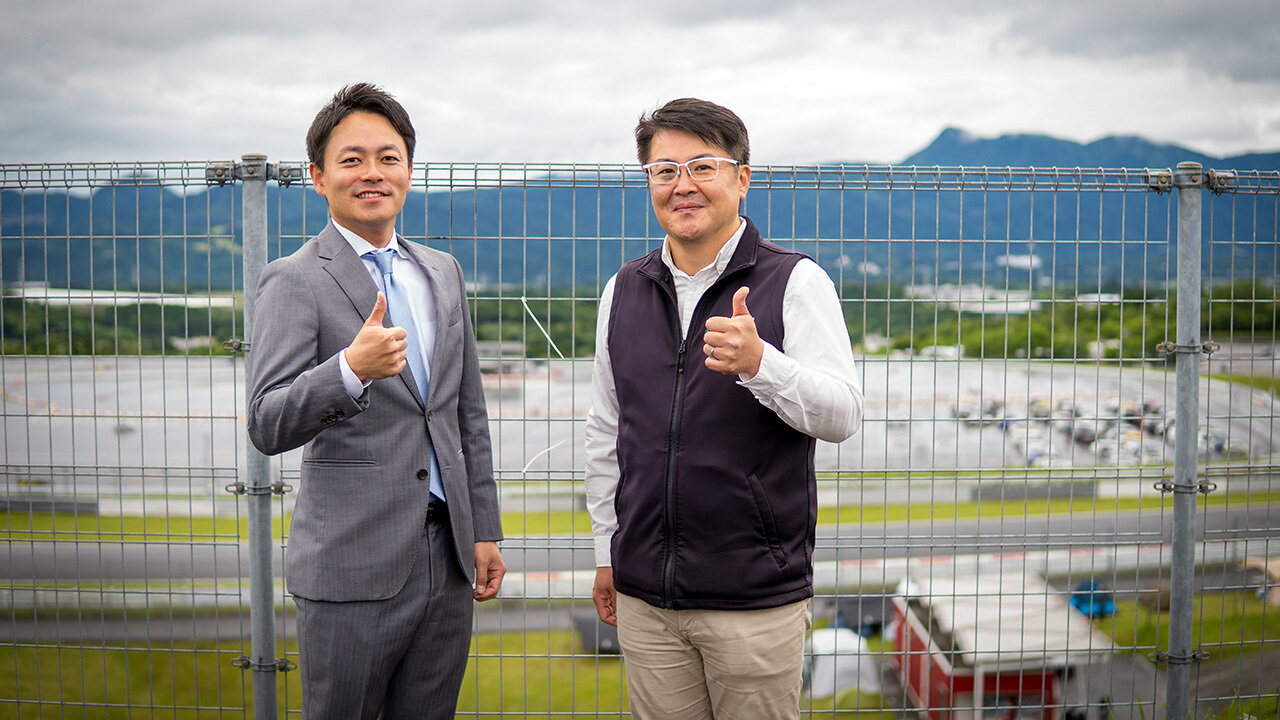
The hydrogen-engine Corolla is racing in the Fuji 24 Hours for its fifth straight year. Once again, we asked automotive analyst Shinya Yamamoto to provide a rundown of the attempt.
This time, we gathered again after dark, sitting around a fire in the Fuji Speedway camp area. Automotive journalist Yuki Imai also joined the festivities to discuss how to cultivate a motorsports culture.
Motorsport turns crisis into opportunity
Yamamoto
Back when I was still a child, the world suffered an oil shock. In response, carmakers pulled out of racing.
Now, the need to decarbonize has created a crisis on par with the oil shocks, but this time, the companies are trying to tackle the challenge by turning to motorsports. This feels like a massive change.
Morita
Instead of pulling back, they’re going for it. Since Morizo made the first move, everyone has jumped on board, creating a big movement.
Yamamoto
In the past, I think it was sort of frowned upon from a corporate perspective.
But now the mindset is that if racing brings benefits, let’s make use of it.
Morita
Yuki Imai, you followed Toyota’s Nürburgring efforts, and then later the Super Taikyu activities. How do things look from your perspective?
Imai

As both of you have mentioned, Morizo’s love for cars has truly never wavered.
In various ways, people who love cars have channeled their expertise into making those cars more sustainable, and these individual dots have connected to form lines.
Car racing has been a platform for technological development since long before we started hearing words such as carbon neutrality, carbon offsets, and multi-pathway.
That has remained true since the birth of the automobile, but as racing gained slightly negative connotations, from problems with pollution and emissions to encouraging wild driving, carmakers became somewhat reluctant to get involved.
For a time, it became shameful to say that you were involved in motorsports.
But the racetrack is a place for developing talent, developing cars, as well as tire manufacturers, parts makers, and of course fuels.
Unfortunately, no one had focused on that aspect, perhaps until Morizo shined a spotlight on it. His efforts were endorsed by racing drivers, creating connections.
This bold action was taken by none other than the president of the world’s largest carmaker. I think this was incredibly significant. I believe that Morizo changed the world.
Morita
A passionate response. Shinya, what do you think about these comments?
Yamamoto
I completely agree. After all, if you don’t love something, you won’t be able to keep it going and give it your best.
Imai
You really feel that, don’t you. I’m sure he has gone through all kinds of hardships and done a great deal to keep that love of cars alive. But he has never deviated from it.
Morita
It flows through all of the various efforts aimed at securing a future for motorsport, from remaining committed to engines and expanding the sport’s reach to getting more young people involved.
Human-centered carmaking
Imai
Setting aside the way he has opened doors to new energy options such as hydrogen, what I find most admirable in Morizo is his focus on people.
Ultimately, he is seeing the people beyond the cars—how will a future with cars make people happy?
I also think he made a big difference by creating an atmosphere where others feel compelled to join in, lest they be left behind.
Morita
His words became a rallying cry, bringing everyone together to ensure that there is a future for motorsports.
As car manufacturers came to realize how incredibly important this is for them, Super Taikyu has become the forum where they gather.
With Super Taikyu and the ST-Q class bringing many different manufacturers together, Shinya you recently noted that they are not simply looking at individual technologies—whether it is hydrogen engines or carbon-neutral fuels—but rather taking a broader perspective as carmakers. I would like to dig deeper into that today.
Yamamoto
Of course, cultivating technologies is definitely part of it.
Whether we are talking about hydrogen engines or carbon-neutral fuels, this is clearly about making the car better as a whole package, and it is people who make ever-better cars.
Which is why, in terms of developing people, I feel that being involved in motorsports is a hugely significant undertaking.
That may well be the most important aspect for the automakers who are competing in this race.
Morita
While individual technologies naturally evolve over time, unless you have people with the mindset, and the skills, to pursue new technologies and link them together, those connections won’t happen.
Yamamoto
I can say this since we’re on Toyota Times, but in the past, Toyota had a culture where people seemed embarrassed to admit they loved cars or felt they couldn’t.
Then Morizo overturned that mindset, and Toyota has become a place where you can openly profess your love for cars. I think that’s the biggest thing.
Morita
For a carmaker, that’s a given, or at least it is today. Wasn’t that always the case?
Yamamoto
The company became focused on selling goods and receiving money—that is, earning profits—but I dare say Akio Toyoda was able to look beyond the profits.
On the other side of any product is a person. Akio wanted everyone to understand what it means to make people happy, what it means to work for the benefit of someone other than yourself.
I feel like motorsport was the simplest way of expressing that message.
Morita
As to what lies beyond that, Morizo doesn’t give away any answers. He simply said, “Ever-better cars,” and let others explore what that means to them.
Yamamoto
If Morizo had said, “Make cars that are good at cornering,” everyone would simply make that their goal, regardless of whether they were designing buses, wagons, or trucks.
Morita
If he had said, “My idea of ever-better cars is cars with good cornering, so that is what Toyota is going to make,” the media would probably have said, “That’s nice and straightforward. So, this is what Toyota is doing now.”
Yamamoto
Only the people making suspensions would have their work cut out for them.
But making ever-better cars requires everyone to give their best, and everyone to put their heads together.
Morita
So the people developing suspensions think about how they can contribute to making ever-better cars.
Yamamoto
And what exactly makes for a good truck? Or a good minivan? I think everyone would respond differently to these questions. Morizo told Toyota’s staff to explore the answers for themselves.

